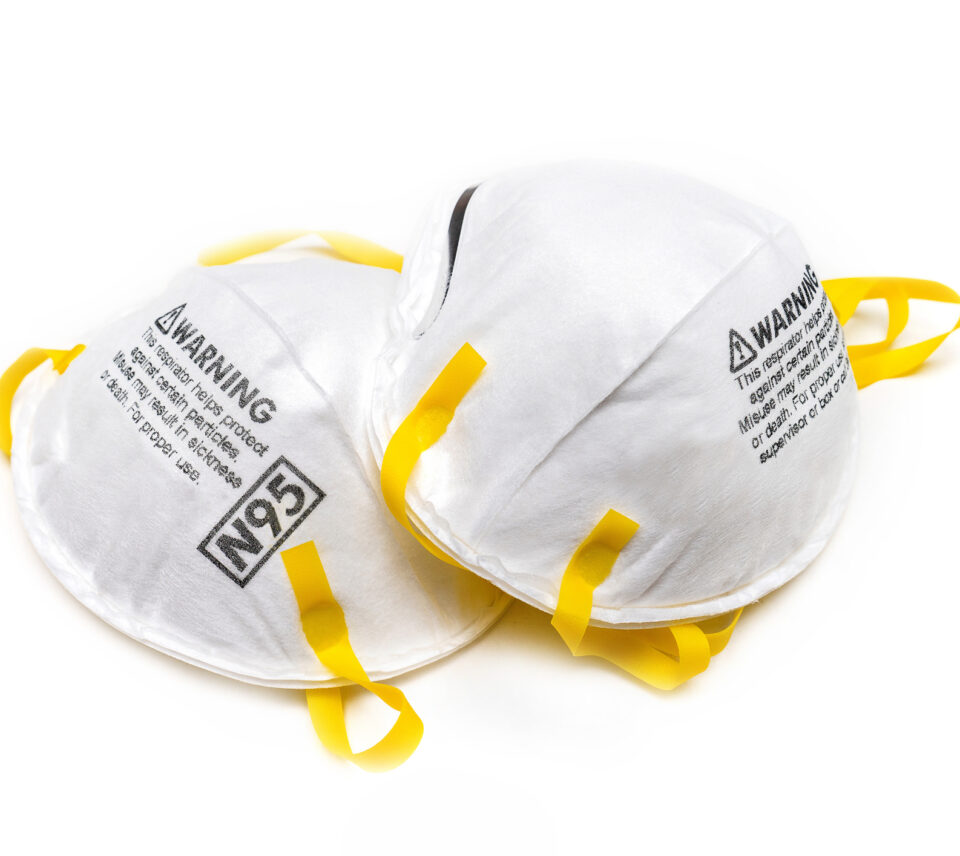
By Alisa Kim
In early 2020, as SARS-CoV-2 spread like wildfire across the globe, Canada, like many other countries, found itself in dire shortage of personal protective equipment (PPE) like masks, gloves and gowns. News reports of beleaguered health care workers rationing PPE on the job added to the sense of fear caused by the pandemic.
Canada’s Health Minister, Patty Hajdu, noted in April 2020 that underfunding of public health preparedness had been a decades-long issue. As a result, Canada found itself competing with a host of other countries, as well as private American hospital networks, to get the most needed PPE—exposing a critical vulnerability in our ability to respond to the health crisis.
Against this backdrop, CSA Group, a standards development organization, asked Dr. Rebecca Hancock-Howard, an adjunct professor at the Institute of Health Policy, Management and Evaluation (IHPME), to lead a project looking at the system of Canada’s pandemic response products. This system encompasses the organizations and practices involved in the manufacturing, approval, procurement and distribution of pandemic response products.
“CSA Group identified the need to do research into the products landscape following the shortages that happened early in the pandemic, and arranged a partnership with the National Research Council and NGen, Canada’s advanced manufacturing supercluster,” says Hancock-Howard, who is also associate director of the Accessing Centre for Expertise.
The report outlines the state of Canada’s current pandemic response products ecosystem and describes what is needed to create a self-sufficient and sustainable ecosystem in Canada. The report also provides recommendations to address gaps in the system. These recommendations will be explored in further detail in a second report to be published in the fall.
The project is an interdisciplinary effort and is the second major collaboration between CSA Group and the Dalla Lana School of Public Health (DLSPH) on the pandemic response. Hancock-Howard worked with Dr. Victoria Arrandale, a faculty member at DLSPH with expertise in occupational health who recently authored a report for CSA Group on safe return to work; Dr. Fiona Miller, a professor at IHPME and founding director of the Centre for Sustainable Health Systems; and Dr. Ning Yan of the Faculty of Applied Science and Engineering (FASE), who are among the project’s advisory panel. The panel also included research vice-deans Dr. France Gagnon and Dr. Ramin Farnood from the DLSPH and FASE, respectively.
In addition to doing an extensive literature review, Hancock-Howard and colleagues interviewed more than 30 stakeholders from the private sector, government, health services and academia to produce the report.
Pandemic response products were grouped into five categories: medical devices including ventilators; PPE; testing and diagnostic equipment like swabs; air and surface sanitation products; and public health supplies like hand sanitizer and nonmedical masks.
The team looked at three domains in identifying gaps in the ecosystem. These are quality infrastructure, supply chain, and sustainability.
One of the key gaps the researchers identified was in domestic production of pandemic response products. Hancock-Howard notes that Canada did not have the ability to test and certify N95 masks, which are tight fitting and limit the wearer’s exposure to large droplets and aerosols. In the absence of such capabilities, Canada couldn’t produce N95s, which are respirators that are tested and certified by the U.S. National Institute for Occupational Safety and Health. “When NIOSH closed their services to international customers, we couldn’t get new manufacturing facilities certified to make N95 masks. There was a gap in the standard for the masks that we needed and there was also no production capacity in Canada,” she says. Since last summer, significant progress has been made: a draft Canadian standard has been developed for a respirator called the PFE 95 along with new laboratory testing facilities. Local product testing is a key component of quality infrastructure that enables self-sufficiency.
In addition to increasing our capacity to make the necessary products and develop domestic standards for them, Hancock-Howard says Canada needs to consider how to make better, more environmentally sustainable products. It should think about how to reduce waste in the system and improve inventory management through technology.
“This will serve us in between pandemics as well. This was done with an eye to being ready for another pandemic, but a lot of these gaps, if we fix them, will have enduring benefits for our health system in ‘usual’ times,” says Hancock-Howard.
The researchers also called for more collaboration between the health care, engineering and standards communities to understand better what the needs are and how products are used, as well as to open channels of communication. She points to the interdisciplinary collaboration that occurred on the project as a hopeful sign of things to come. “We had engineers, industry, physicians and sustainability people. It was a huge panel of people with broad expertise. One of the things I most liked about the project was that it was something we were recommending, but it was also something we had done in the process.”
Related News

Sign up for IHPME Connect.
Keep up to date with IHPME’s News & Research, Events & Program, Recognition, e-newsletter.
Subscribe to Connect Newsletter
Get in Contact
Communications
Marielle Boutin
Email Address: ihpme.communications@utoronto.ca





